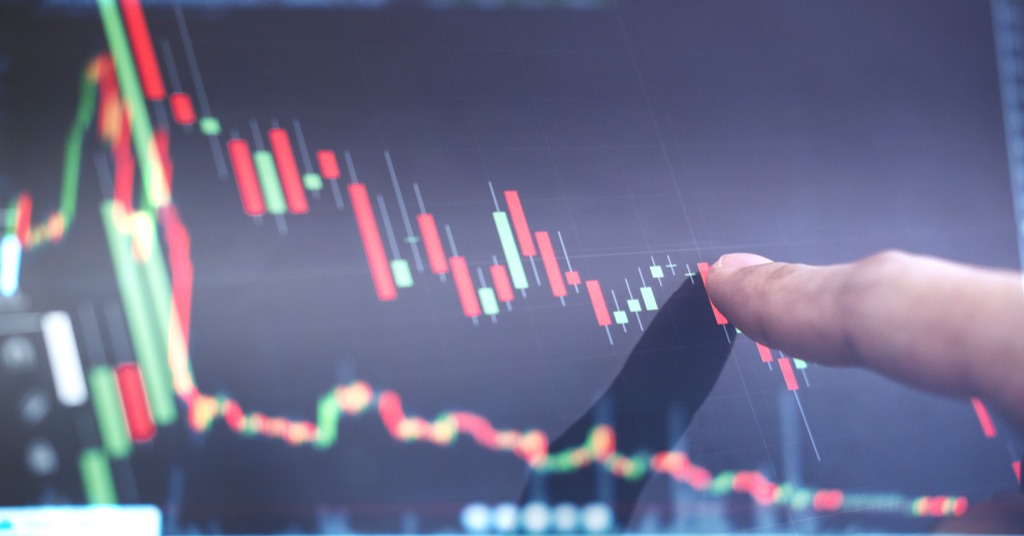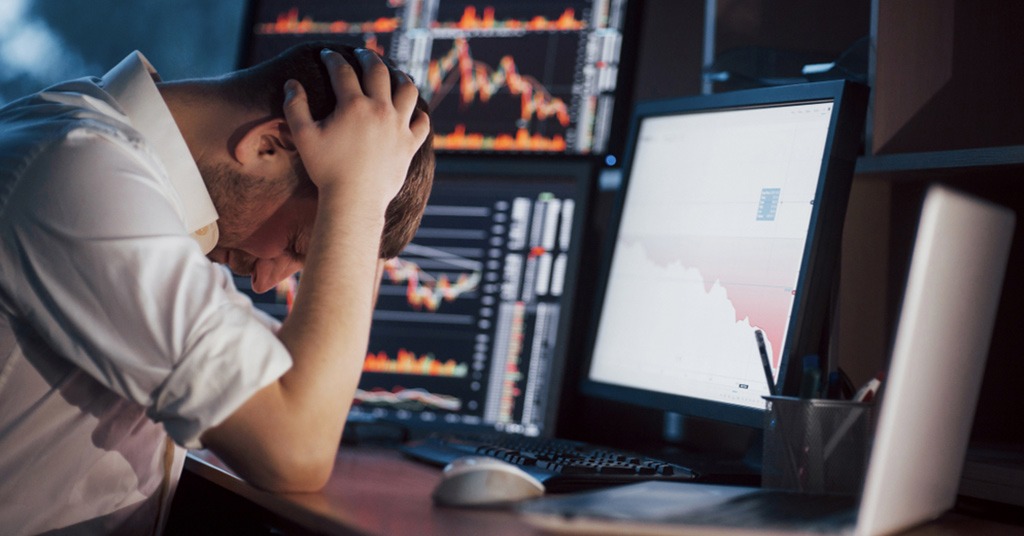 Baby Bull
Baby Bull
iOS app that provides an investment journal platform
whilst teaching investors how to use it
The Mentality Of The Majority
Feeling positive about the market? That’s likely to drive the stock market forward, this is because most of us represent the general mentality of the market and stock prices move when investors shift sentiment.
The main reason why people buy stocks is to make a profit, investors will flee for the financial market that offers the best return for their money. In other words, when the economy underperforms, the stock market will instantaneously catch up with it. As we live in a small world, when major economic powerhouses (e.g., United States, Japan, China, Eurozone) catch a cold, the world’s economy turns South. So do stocks. As such, investors will shift their capital to safer assets (e.g., bonds and gold), until conditions improve. Remember the 2008 financial crisis? The stock markets around the world collapsed when the U.S. housing market imploded. The idea was that the U.S. economic problems would create a ripple effect in the world’s economy and soon other parts of the world will be affected. Investors pounced on the opportunity by selling and short selling shares. However, central banks intervened, and in time the U.S. economy got better, dragging other economies up as well. But how do investors know when an economy improves? Thanks to economic news, one can now trace the shape of an economy.

How do investors know when an economy improves? Source: shutterstock.com
How do you prepare for the market?
In the case of stocks trading, there are three types of economic news that make the stock market move:
- Company related news;
- Local economic news;
- Global news.
Company related news shows the financial situation of a company. How do traders know if a company is in good shape? Simple: they check the earnings reports from online reports or 10Q and 10K’s. For every listed stock, financial reporting is mandatory. Just search the internet for the earnings calendar, and you’ll find a bunch of websites offering the information for free, or go on the SEC’s website and use their EDGAR search tool. Together with the earnings call time (before market open or after market close), you’ll also get an EPS (Earnings per Share) estimate. Researchers and analysts compile the data and make a forecast based on the company’s activities. Next, the reported EPS is compared with the forecasted one. Positive surprises will usually be rewarded with a price increase, while negative ones will result in the stock price of a company to dip. However, there are other tricks to consider here, besides EPS. For example, it may be that the EPS will miss expectations, but the CEO (Chief Executive Officer) will hold a conference call outlining a new product or a new direction for the company. As such, after the initial dip, the stock price may recover and even make some consistent gains.

Company related news shows the financial situation of a company. Source: shutterstock.com
Dividend payout? Stock buybacks?
The dividend plays a vital role in the decision to buy or sell a stock. Some investors want only the dividend, and right after the dividend date, they sell the stock. Therefore, knowing the dividend date is critical for the right positioning. When a company decides to pay a dividend, it effectively shares parts of its profits. The dividend and dividend yield will generally increase when the company is doing well and will decrease on poor performance (companies usually raise dividends to increase share price, so when they do need to raise capital, they issue fewer shares and hence stay in a better decision. Dividends are usually only paid by bigger companies as they can afford to share their profits).
Finally, buy-back programs give a significant clue about the strength of a company. When a company announces a buy-back program (effectively it buys its own shares), that’s usually a bullish sign (this is due to their confidence of growth in their company, however sometimes a buyback may be performed to reduce the number of shares outstanding by purchasing and effectively ‘destroying’ the shares, to improve EPS or other indicators).

All news affects the price of stocks. Source: shutterstock.com
The importance of news and the central bank
All news affects the price of stocks. Local news data are economic news specific to the local economy. For a U.S. based corporation, the U.S. economic data matters the most. On the other hand, a European or Japanese company will be most affected by changes in the European and Japanese economies but feel ripples from global economic news as well.

The investor has to closely watch central banks’ monetary policy. Source: shutterstock.com
Above all, an investor has to closely watch central banks’ monetary policy, they control the supply of money in an economy mainly by manipulating the interest rates. Information regarding this can let investors know in advance:
- Its implications for the economy (how the terms of trade, inflation rate and more are expected to affect the future of the economy);
- Forecasted value V.S Reality of different goods including commodities (copper), necessities (food) and more (This helps investors spot trends in certain sectors);
- The forecasted value of inflation (derived from trading relations, changes in the basket of goods for the CPI and more);
- How it’ll influence a central bank’s decision (the future rates of interest, which in turn affect the performance of the stock market due to a positive or negative outlook on the economy).
Main factors affecting the prices of stocks

The following are only some critical pieces of economic data that move the overall stock market. Source: shutterstock.com
Based on their importance, the following are only some critical pieces of economic data that move the overall stock market:
- Consumer Price Index (CPI). Released monthly and yearly, this is the inflation data. Higher inflation brings higher interest rates, and this is a stock market negative.
- CPS (U.S.) or LFS (U.K) for unemployment. The unemployment rate plays a critical role as it tells much about the shape of an economy. The higher, the worse for the economy and the stock market in general (generally due to fewer people working, therefore people have less disposable income to spend on goods and services, companies receive fewer profits and cut costs by firing people, creating a negative multiplier effect that continues).
- Gross Domestic Product (GDP). The GDP represents the total value of goods and services in an economy. Generally, the higher the growth rate, the better for the economy and the stock market.
- Retail Sales. All consumer-related data points to the health of an economy. Higher retail sales suggest high disposable income, hence better for the stock market as money to invest becomes available.
- Purchasing Managers Index (PMI). Having different names around the world, the PMI shows the strength of a specific economic sector. Compared to the 50 level, the higher the value, the stronger the sector, hence bullish for the stocks in that sector.

Global News or breaking news move the stock market too. Source: shutterstock.com
- Global News or breaking news, the ones that make the headlines any given day, move the stock market too. Wars, elections, geopolitical factors, everything that has to do with changes in the way the world acts, play an essential role in defining the risk. When traders/investors perceive the global economy as being risky, they typically sell stocks and park the money in safe-haven assets, other than the stock market (e.g., safe currencies — Swiss Franc, bonds, etc.).
- Demographics of the age of investors. The demographics of a population also plays a big role as the younger generation might be more optimistic and speculate/invest in riskier sectors, e.g technology, whilst the older generation might stick with utilities and healthcare. A prominent example today being the baby boomer time bomb, suggested by Peter Temple that by 2030 the number of people older than 65 will be increased by 20% from 2003, the aging population alongside the pension time bomb serves to create an obvious link to healthcare and financial services.
- Speculations. Whenever stock analysts or other professionals make public statements concerning the health of stocks or the economy, it often is a self-fulfilling prophecy as it creates waves of either panic or confidence in the economy. There is also speculation when it comes to a change of management, investors might speculate that a change in management might lead the company to be more innovative with their product development as well as how they deal with risks. Investors also speculate on upcoming mergers and acquisitions, often leading to many arrests due to insider information.
- General Market Trend. Whether inflation is currently rising or falling, whether the supply and demand of an economy is in a favorable position, whether the interest rates of bond payments increase (as bonds usually have an inverse relationship with stocks).
If you invest solely based on predictions from analysts, friends or family most likely you’d end up with mediocre results at best and devastating losses at worse. This is due to a phenomenon known as herding, whereby the information you are given will most likely be public information available to anyone, hence they’d probably think and act the same way you do, you’d also be slower than the majority most of the time.
Conclusion
The saying that the stock market is the best representation of human behavior is all too true. Fear and greed become quickly prominent in the market whenever some sort of news comes out. Economic news has the potential of reinforcing the belief in stock, or it can quickly turn the sentiment for the stock market in general. Whether it be Internal or external, local or global, economic news moves the stock market and shapes the buying/selling behavior. As such, knowing where to look becomes an essential investing component.

Knowing where to look becomes an essential investing component. Source: shutterstock.com
Baby Bull is the first and only iOS app that provides an investment journal platform whilst teaching investors how and why they should use an investment journal.
We are two budding 19-year-old entrepreneurs (Truman Tong and Rhyme Luk), using our own money earned from internships and pocket money to create an app, that will capitalize on a market of over 27 billion downloads within the finance and education.
We have created a tailored investment journal layout to make it easy to store all the notes you have in a safe place. Not only will journalizing your investments help improve your diagnostic analysis, but it’s also a great way to show prospective employers your thoughts and processes when investing to highlight your knowledge during interviews.
Install soon on the App Store to become better, faster for free!
Find us on our social media platforms: Facebook, Instagram, Twitter, Linkedin at @babybullapp
SEE ALSO: Introduction to the stock market









